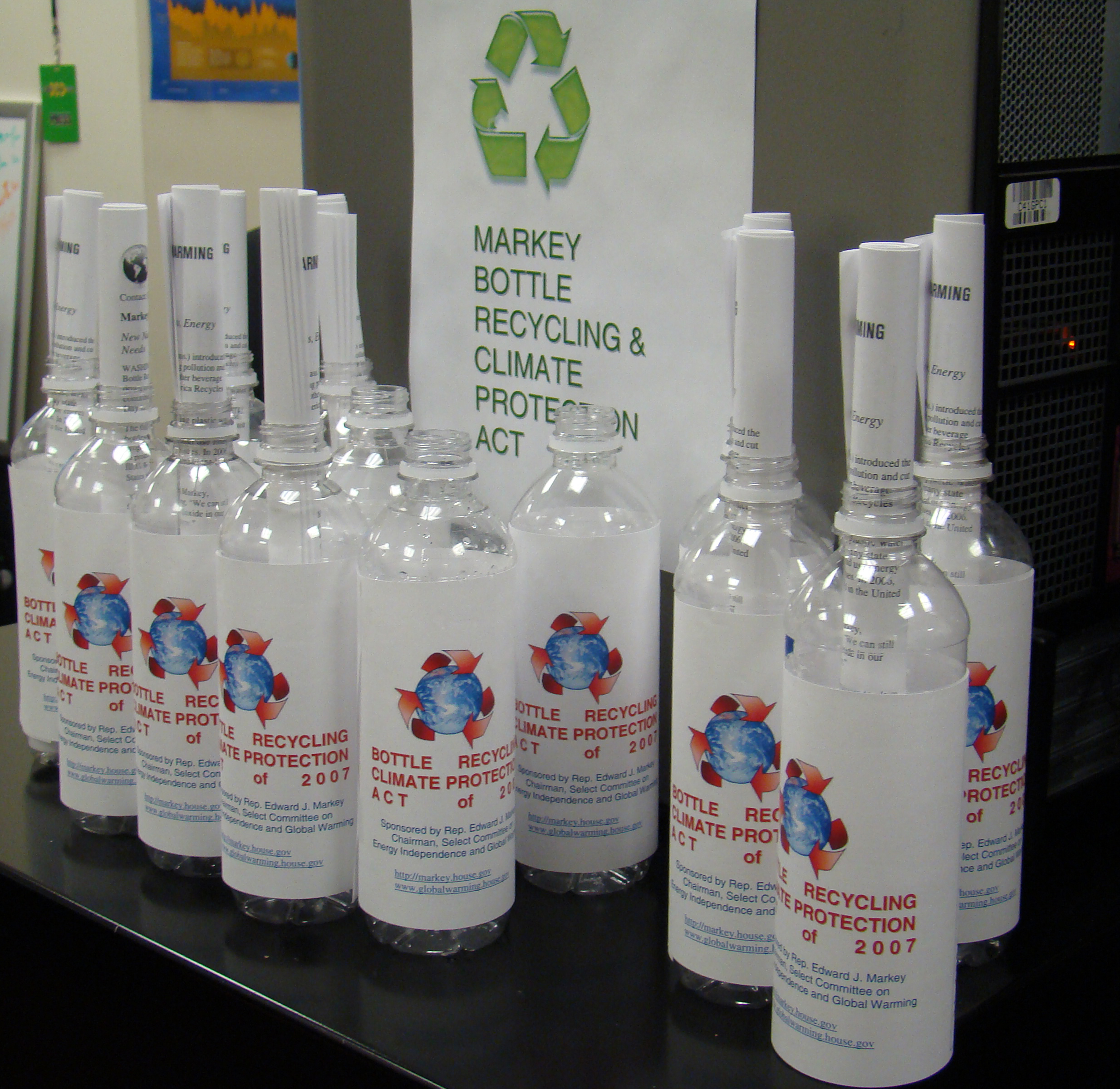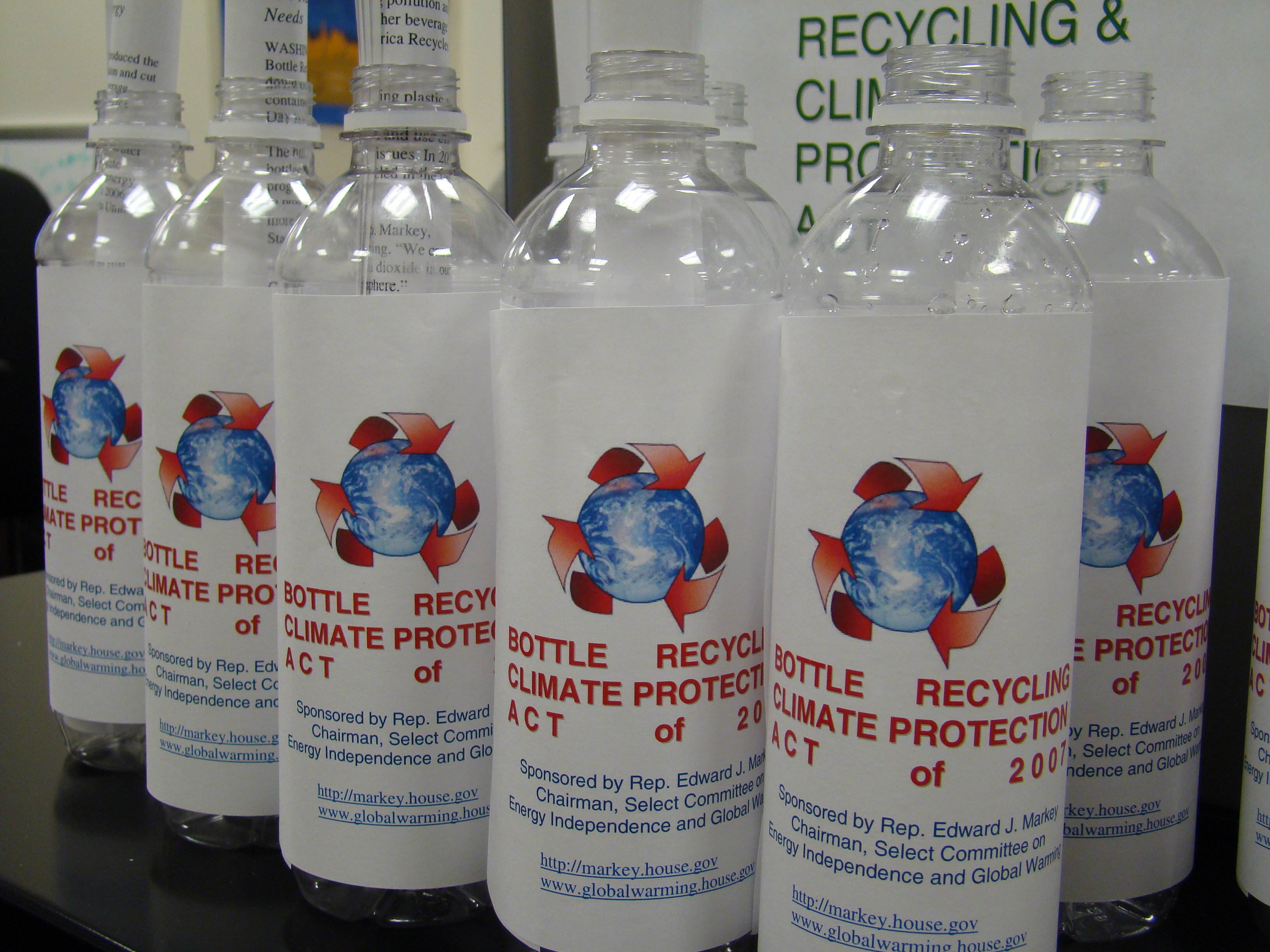New National Bottle Bill Would Cut Heat-Trapping Emissions, Energy Needs
FOR IMMEDIATE RELEASE
Contact: Select Committee, 202-225-4081
Markey: Global Warming Message in a Recycled Bottle
New National Bottle Bill Would Cut Heat-Trapping Emissions, Energy Needs
WASHINGTON (November 15, 2007) – Today Rep. Edward J. Markey (D-Mass.) introduced the Bottle Recycling Climate Protection Act, which would decrease global warming pollution and cut down on energy use by encouraging large-scale recycling of cans, bottles and other beverage containers throughout America. The introduction of the bill coincides with America Recycles Day today.
The bill would establish a national 5 cent deposit on beverage containers, including plastic water bottles and other containers that have become more prevalent in recent years after many state programs were established. These bottles and other containers pour into landfills and use energy to produce, thereby creating global warming pollution and other environmental issues. In 2006, more than half of the 200 billion beverage containers that could have been recycled in the United States were incinerated or littered.
“Congress can send the nation a global warming message in a bottle,” said Rep. Markey, Chairman of the Select Committee on Energy Independence and Global Warming. “We can still quench our thirst while reducing our thirst for energy. And we can have carbon dioxide in our fizzy drinks, while cutting down on heat-trapping carbon dioxide in the atmosphere.”
Currently, 11 states have deposit programs that encourage consumers to return containers to claim the refund on the deposit. In the states that have passed bottle bills, recycling rates are twice that of states without deposit laws. The new National Bottle Bill recognizes the leadership of the states on this issue, and exempts states that have high recycling rates or existing state
legislation from the national standard for 3 years, or as long as they maintain high recycling rates.
Plastic water and juice bottles have become increasingly prevalent since many state bottle bills were initially adopted. Including plastic bottles in a national bottle bill would lead to significant savings in energy and oil consumption. One ton of recycled plastic saves 5,774 kWh (kilowatt hours) of electricity and 685 gallons of oil.
Aluminum cans also account for an increasing amount of waste. 58 billion cans are thrown away every year here in the United States, enough to fill the Empire State Building six times. If all these cans were recycled, it would cut the emissions of heat-trapping carbon pollution by nearly 6 million tons, or the equivalent of the pollution from more than one million cars. Cans made from recycled aluminum use 95 percent less energy than cans manufactured with new materials.
“Recycling is an everyday action that we can all take to cut global warming emissions and be good environmental stewards,” continued Rep. Markey. “Our national goal should be to one day recycle every single bottle we use, and this bill will get us closer to that goal and that day.”
The National Bottle Bill has already gained support from leading environmental and recycling organizations, including the Container Recycling Institute, the Natural Resources Defense Council, and the Public Interest Research Group.
# # #


The Select Committee was active during the 110th and 111th Congresses. This is an archived version of the website, to ensure that the public has ongoing access to the Select Committee record. This website, including external links, will not be updated after Jan. 3rd, 2010.
![]() del.icio.us
del.icio.us
![]() Digg this
Digg this
![]() Reddit
Reddit
![]() Stumbleupon
Stumbleupon



